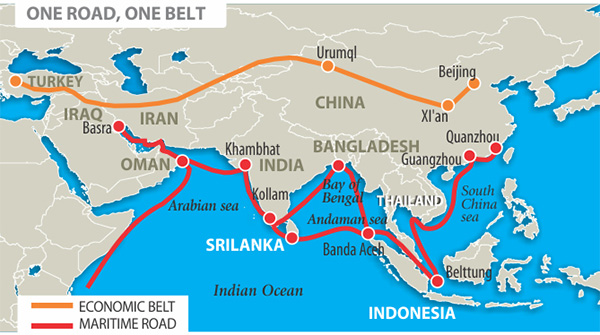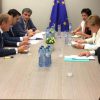
The agreement between the six world powers and Iran is important not only because it will prevent a war or a nuclear arms race in the Middle East, but because it paves the way for reintegrating the country into both regional and global frameworks. But this does not mean that Iran will stop defending what it considers its core national interests or that the ayatollahs’ regime will open up from one day to the next. Lifting the sanctions might provoke a supply shock that undermines the regime but the latter will do everything possible to resist (similarly to Cuba and China, which are very different cases). Nevertheless, the spontaneous celebrations of the people in Tehran celebrating the news were not orchestrated by the regime, and were a good reflection of what Iranian society thinks. If Obama has been successful it is because, unlike his predecessors, he has not put his trust in resolving the nuclear issue by forcing the pace for a regime change (even had he been able to) but, as we have previously noted, in aspiring to transform it by resolving the nuclear issue. The Economist Intelligence Unit predicts that Iran’s economy, which is growing this year at a mere 2%, will for the rest of the decade do so at 5.2% per year, taking it from the 29th to the 22nd position among the world’s economies.
With the events of recent years Iran has gained influence, largely due to Western mistakes: it has done so in Iraq and Lebanon, and somewhat less in Gaza –given its distancing with Hamas– and moderately so in Syria –insofar as its ally Al Assad is holding up better than expected–. It also exerts influence in Yemen. The Vienna agreement again strengthens Iran, and this is unnerving for both Saudi Arabia, its major regional rival (for geopolitical and religious –Sunni vs Shiite– reasons) and for Israel, whose Prime Minister Benjamin Netanyahu openly opposed it. This might well prove to be his biggest historical mistake, or perhaps it is a ploy to ensure a larger share of US military aid. Both Saudis and Israelis agree in their view that the accord makes the region more dangerous, not less, as it widens Iran’s elbow room. This sort of thinking has led to talk again of ‘deterrence’ and even of policies of ‘containment’. Turkey, the other major regional rival, has other concerns.
That Iran gains does not necessarily mean that others lose out. Although the agreement will not miraculously solve many of the problems in a region burdened by geography, history and religion and plagued by war –civil or by proxy–, Obama is right in saying that the world is a safer place following the agreement. But Iran’s foreseeable international ‘normalisation’ does not imply a return to orthodox behaviour, not even the restoration of diplomatic relations with Washington in the short term. We should not expect the Ayatollahs’ regime to discard its rhetoric, whether anti-US –as the Grand Ayatollah Khamenei has already made clear– or anti-Zionist. Iranian society is a different matter. The agreement, as Obama and Kerry have explained, is not based on trust but on a strict system of verification of the measures agreed.
We are witnessing a deep-seated and long-term move not limited to the traditional regional powers –including the US and Russia– but also to others such as China –one of the six world powers present at Vienna–. Significantly, the land part of the New Silk Road project, which the Chinese also call the Belt and Road initiative, runs through northern Iran, opening up possibilities for cooperation between the US and Beijing. That is, what is at stake is the reintegration of an ancient civilisation, Persia, which is aware of the weight of history and geography, especially at a time of worldwide changes. Iran is still an observer at the Shanghai Cooperation Organisation, which itself has just been strengthened by the entry of India and Pakistan. Deep tectonic shifts are in motion.
The Iranian political scientist Mahmood Sariolghalam, currently one of President Rohani’s advisors, defines Iranian foreign policy as consisting of three concentric circles, as noted by Roberto Toscano in his interview for the Elcano Magazine. The first, outward, circle is the religious dimension (Islamic and Shiite); the middle circle is the ‘anti-imperialist’ component; and the third, the central one, comprises issues that are of national interest. Popular consensus is greater at the core than further out. The least important factor is religion. It is national security that really defines Iranian politics. But the regime, and especially its head, the Grand Ayatollah, are the ones who decide. Hence the system’s evolution is important. Those who are most conservative fear losing control in a society in which 70% of the population had not been born at the time of the Khomeini Revolution of 1979. Some hard-liners, such as former President Abolhassan Bani-Sadr, have judged the agreement a ‘surrender to foreign powers’, but even though they control the parliament, the last word is Khamenei’s. Nevertheless, it is not inconceivable to see a harder line being taken against dissent to show that the regime has not budged.
But if geopolitics are in command, ultimately all politics are local. Rouhani, the reformist President, has been strengthened by the agreement and the economic prospects it opens up. He has spoken of ‘opening new common horizons’. Among them, according to Foreign Minister Zarif, is that ‘the hooded men who are ravaging the cradle of civilisation’ –Daesh– are a common enemy for many. Iran’s leaders know that the US needs their cooperation against Daesh to pacify Syria and Iraq and to integrate Afghanistan.
The Vienna agreement, reached after 10 years of tough negotiations, is the triumph of diplomacy (supported by economic sanctions, which have proved to have been effective) and should be seen as an example to counteract the rhetoric of military conflict that has made a comeback in several parts of the world. The Non-Proliferation Treaty has been strengthened. Although the US has actually been in the lead, the 5+1 formula has worked: the five permanent UN Security Council members plus Germany, to which should be added the important role played by the EU, latterly under Federica Mogherini, but before that under Javier Solana and Catherine Ashton.


